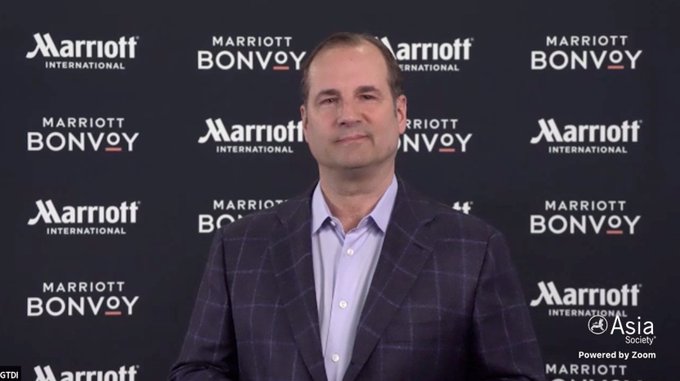Illegal robocalls are an abusive and deceptive form of telemarketing, with over 18 billion pre-recorded telephone calls in the U.S. in 2020. Four months into 2021, that figure has already reached 7.2 billion.* Marriott, its customers and the American public at large have been aggressively targeted by these robocallers. To induce consumers to purchase the promotion, the robocallers falsely represent that they are agents or employees of Marriott. Illegal robocalls in the U.S. fraudulently claiming to be from Marriott increased dramatically in 2020 – to a peak of seven million per month.
"Marriott has undertaken this federal lawsuit against illegal robocalls primarily to protect our customers, but also to protect our brand name and intellectual property," said Stephanie Linnartz, President, Marriott International. "Marriott's fight will not stop with the filing of today's complaint– we will continue to consider and leverage all tools at our disposal to identify and bring to justice the bad actors behind these illegal and fraudulent robocalls."
Marriott leveraged the capabilities of two industry leaders in the fight against illegal robocalls: the Industry Traceback Group (ITG) and YouMail, Inc. The ITG, which is designated by the Federal Communications Commission as the official robocall traceback consortium, rapidly identifies the origination point of illegal robocalls. YouMail, a company that protects consumers with app-based call protection services, identifies problematic numbers and robocalls using a combination of its recently patented audio fingerprinting technology, call patterns, and consumer feedback. Marriott is working together with both the ITG and YouMail to identify the perpetrators and track their activity.
On December 3, 2020, Marriott updated and re-issued a public statement to confirm that Marriott is not responsible for the fraudulent robocalls, nor has it authorized them. Marriott has received many consumer complaints about fraudulent robocalls mentioning Marriott, leading the company to file this lawsuit to halt the deceptive and abusive telemarketing acts, practices and trademark violations. In addition to the lawsuit, Marriott has provided information about the ongoing scam to the Federal Trade Commission and made clear that the Company will work with regulators in their efforts to stop these illegal robocalls.
How Consumers Can Protect Themselves
There are a number of steps consumers can take to help protect themselves from these illegal and fraudulent robocalls:
- Know the facts:
- If you answer the phone and hear a recorded message instead of a live person, it's a robocall.
- Marriott is not associated with and does not authorize any robocalls using prerecorded messages.
- Marriott has not and will not provide any contact or personal information to the perpetrators making these fraudulent phone calls.
- What should I do if I receive a robocall?
- Do not provide any personal or credit card information.
- End the call immediately.
- Report robocalls to the Federal Trade Commission and the Federal Communications Commission.
- Contact your phone company to learn more about the blocking and labeling solutions that may be available to protect you from unwanted and illegal calls.
For more information on phone scams, visit the Federal Trade Commission's consumer information page.
*YouMail Robocall Index Historical Robocalls by Time
